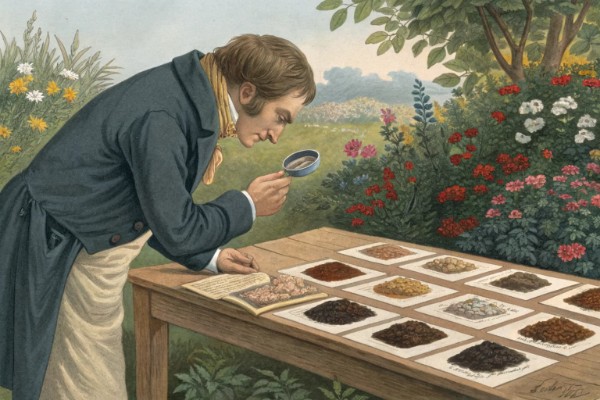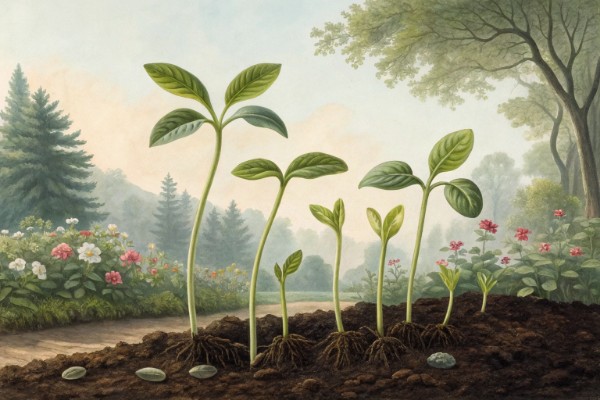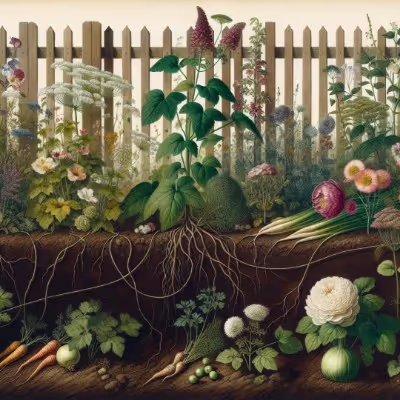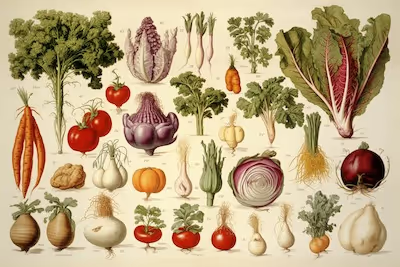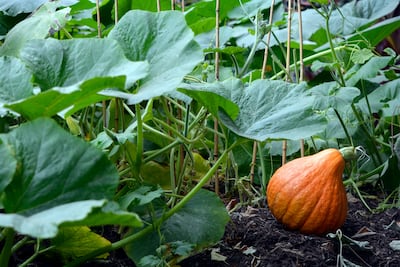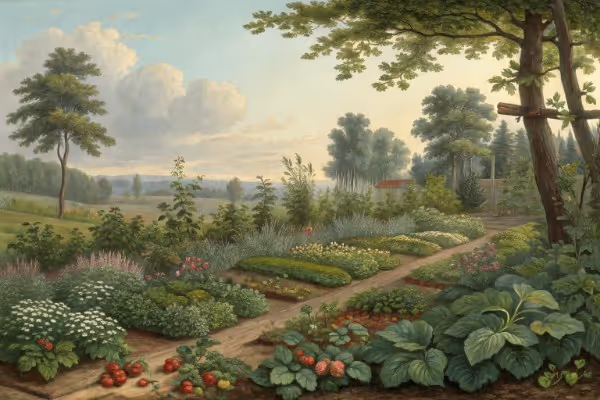Buying Farmland: An Expert Guide for Gardeners and Investors
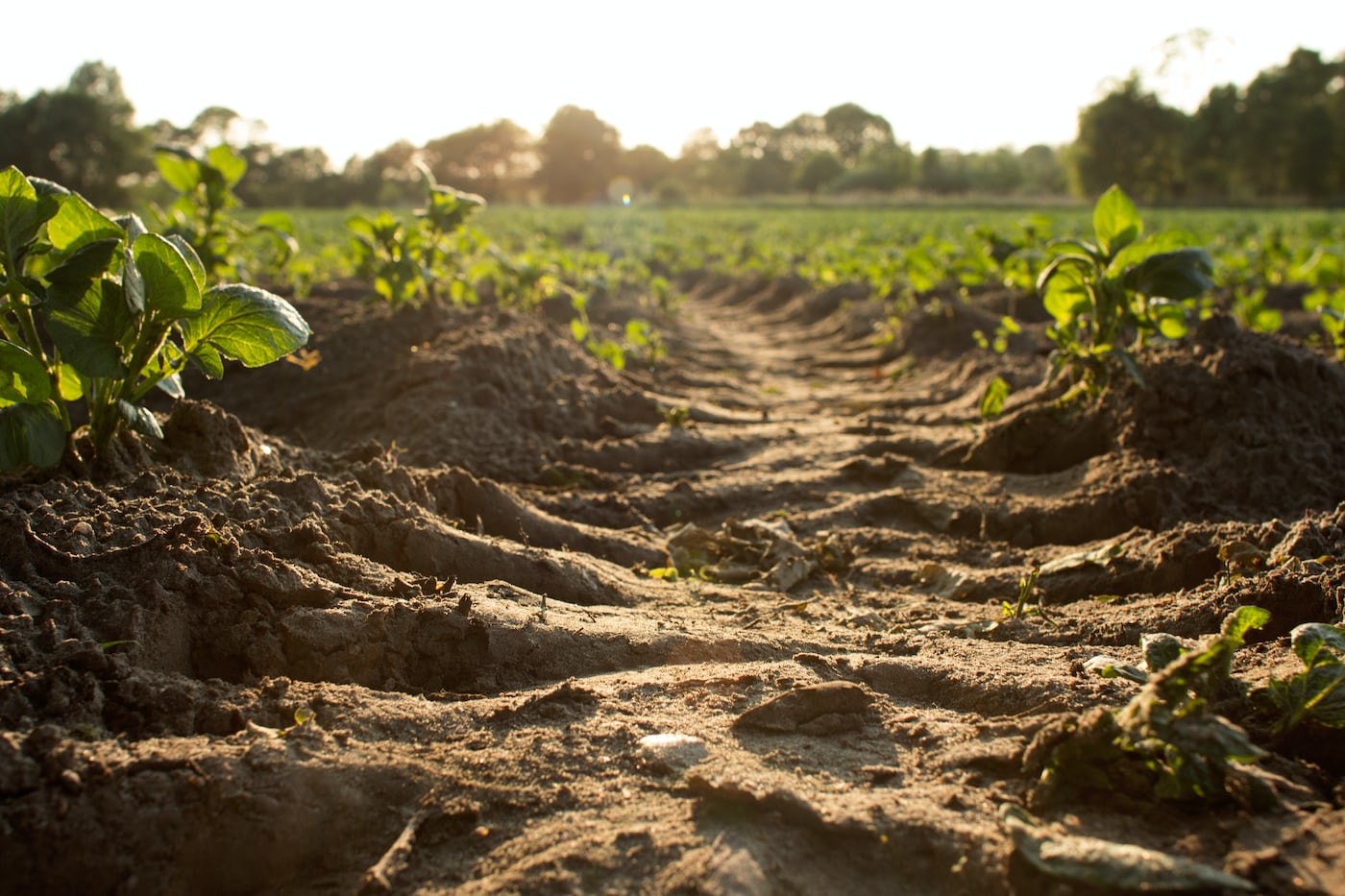
Buying Farmland
Buying farmland puts control over your food sources into your own hands. Before signing the papers, clearly define your purpose—production farming, a family homestead, or conservation—and inspect soil quality, water access, and zoning restrictions. With careful research and clear objectives, buying farmland can become your path to genuine self-sufficiency and lasting fulfillment. Read on, and let's dig into the details.
Cheatsheet: Acquire Productive Farmland with Confidence
🗺️ Location & Access
- Proximity: Water, markets, supply stores
- Access: All-weather roads, truck entry
- Climate: Growing zones, frost dates
🌱 Soil & Water
- Soil test: pH 6.0–7.5 (neutral), loam ideal
- Drainage: Avoid waterlogged/dry patches
- Water source: Well, stream, irrigation rights
- Tip: 1 acre (0.4 ha) can supply a family’s vegetables year-round
📜 Zoning & Rights
- Verify: Agricultural zoning, restrictions
- Water rights: Essential for crops
- Easements: Road, pipeline, utility access
💰 Cost & Returns
- Land price: $4,000–$12,000/acre ($10k–$30k/ha), median USA
- Rental yield: 2–5%/year; healthy soils up returns
- Food security: Homegrown reduces grocery bills 35%
🌿 Health & Self-Sufficiency
- Produce: Fresh, nutrient-dense food
- Pesticide control: Grow organic
- Resilience: Buffer against supply shocks
🛠️ Tools and Products You’ll Need
- Soil test kit
- Tractor or rototiller
- Irrigation system
- Fencing
- Seeds or starts
- Compost or amendments
📝 Steps to Buy Smart (Expert Process)
- Research local land prices, market trends, water availability
- Order soil & water tests
- Check zoning, title, water rights with county office
- Walk the land; inspect for access, flooding, erosion
- Negotiate price & contract with contingencies
- Close sale; purchase insurance
- Develop: fence, install water, prep soil, plant test crops
Buying Farmland: An Expert Guide for Gardeners and Investors
Why Gardeners Daydream About Owning Farmland
I’ve spent years knee-deep in garden beds, but the holy grail has always been a parcel of farmland—soil you can plant out at scale, an expanse where your ambitions aren’t boxed in by the neighbor’s fence. Owning farmland means taking your growing obsession off-leash. Some gardeners crave the control, the connection, and the possibility of growing crops beyond the home plot.
For investors, farmland tells a different story. According to the USDA, farmland values in the U.S. rose by 8.1% in 2022, with cropland averaging $5,050 per acre ($12,482 per hectare). Investment returns routinely outpace residential real estate and are less volatile than stocks. Food and soil are never going out of style.
First Steps: What You Need To Look For
Location writes the script for your growing and investing future. Microclimate, water access, soil type, and zoning turn into either bounty or headaches. Start with these essentials:
- Soil health: Request a soil analysis from local extension services. Loam soil rich in organic matter spells gold for many crops. Heavy clay can mean drainage nightmares. Sandy soils will eat fertilizer and water for breakfast.
- Water rights: Don’t trust a pretty creek. Verify legal water rights. In arid regions, access can make or break the purchase.
- Zoning and restrictions: Reading local ordinances saves grief. Some parcels ban commercial growing or limit building structures like greenhouses.
- History of the land: Ask about chemical applications, floodplain status, and why the last owner sold. “Don’t buy the seller’s problem,” my mentor in Sonoma Valley told me. Best advice I ever got.
Comparing the Best Types of Farmland for Gardeners
- Row-crop land: Best if you're planning field-scale vegetables, grains, or hemp. Higher price per acre, but easy to rent out during off seasons.
- Pasture/hay land: Perfect for those adding livestock or looking at permaculture, silvopasture, or orchard projects. Often cheaper than prime cropland.
- Mixed-use (woodland, prairie, field): Biodiversity, wildlife, and personal recreation make this versatile but harder to finance through farm-specific loans.
Key Steps in the Buying Farmland Process
- Assess access roads and infrastructure. A farm without a reliable entry can become a prison after rainstorms or snow.
- Check boundaries and survey documents. I once purchased a patch that had a fence built nearly 200 feet (61 meters) onto a neighbor’s field—luckily, we sorted it out without a shotgun duel.
- Interview neighbors. They know the flooding, drought, and buried tractors better than any realtor.
- Consult with agricultural lenders. The Farm Service Agency, Farm Credit, and specialty outfits like AgAmerica offer products tailored for farmland, sometimes with lower rates and flexible repayment terms compared to consumer banks.
Farmland Investing Tips for Gardeners
Rent it out before you till it. Many farmers lease new land to others—corn, soy, hay—for one or two seasons, which covers your mortgage while you develop a master plan.
“Farmland has historically provided steady cash flow and appreciation—averaging over 10% annual returns in some U.S. regions” (National Council of Real Estate Investment Fiduciaries, 2023).
For long-term profitability, look for regions with rising demand for locally grown produce or grape-friendly climates if vineyards intrigue you. Think about infrastructure—existing barns and irrigation lift financial weight off your shoulders.
Questions Gardeners Ask Before Buying Farmland
- How many acres do I actually need? Most hobby growers thrive on 2–10 acres (0.8–4 hectares). For market farming or orchards, 10–40+ acres (4–16+ hectares) offer flexibility.
- What’s the going rate per acre here? Check the USDA's Farmland Values Report or local agricultural extension offices for hyper-local comps.
- What about organic certification? Organic transition takes three years after the last prohibited chemical application. Inspect records or risk delays and headaches.
- Do I need an LLC? Investors often use Limited Liability Companies for liability protection and easier inheritance planning. Consult a local ag attorney before jumping in.
Farmland Alternatives: Don’t Ignore These Options
- Community Land Trusts: Groups like Equity Trust hold land for sustainable food production. Lower costs, but less autonomy.
- Farm incubator programs: These offer lease-to-own or subsidized leases for new growers. The National Young Farmers Coalition lists active programs by state.
- Farmland REITs: For those who want to invest but don’t want muddy boots. Publicly traded real estate investment trusts like Farmland Partners offer exposure to agricultural returns.
Pro-Level Tips for Closing the Deal
- Hire a soil scientist or experienced farmer for an on-site consult before signing—$500 well spent.
- Request all existing water tests, well logs, and recent farm tax records.
- Plan for insurance—crop loss, outbuildings, and liability all hit different policies.
Getting Expert Help—and Where to Dig Deeper
Extension agents, the American Farmland Trust, and local ag co-ops are bottomless wells for field-proven advice. Never skimp on local wisdom—old-timers hiding in the feed store will tell you where the water pools and where the deer eat everything in sight.
Curious how to turn raw land into a productive paradise? Personalized plans make a difference—try Taim.io for step-by-step instructions tailored to your goals and region.
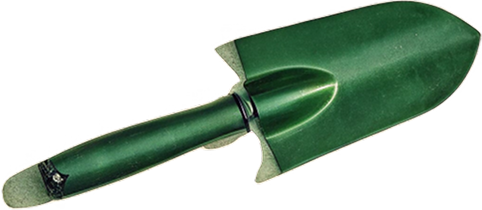
Want smarter plant choices? 🪴
Frequently Asked Questions About Purchasing Farmland
What factors determine the best location for farmland?
Location significantly impacts farmland productivity and value. Consider factors such as soil fertility, rainfall patterns and climate, access to markets, and local agricultural infrastructure. Areas experiencing moderate temperatures (60°F–77°F / 15°C–25°C) and consistent annual rainfall (20–30 inches / 500–760 mm) typically offer ideal agricultural conditions.
How can buyers accurately evaluate soil quality?
Obtaining a comprehensive soil test provides crucial data. Look for reports detailing soil texture, organic matter content, pH levels, and nutrient availability. This information helps determine crop suitability and necessary amendments, guiding informed farmland purchase decisions.
What zoning restrictions should potential farmland buyers consider?
Review local zoning ordinances and land-use regulations before purchase. Common restrictions involve land subdivision, livestock limitations, and building guidelines. Confirming zoning compatibility ensures future agricultural enterprises remain compliant and profitable.
How does water availability influence farmland value?
Water accessibility directly affects agricultural productivity and land value. Evaluate proximity to natural water sources, groundwater availability, well capacities, and irrigation infrastructure. Areas with reliable and sufficient water resources increase the land's long-term agricultural viability.
Are there financial assistance options or grants available for farmland buyers?
Yes, several financial assistance programs—such as loans and grants—exist through government bodies and agricultural organizations. Investigate resources from the USDA Farm Service Agency (FSA), European Union Common Agricultural Policy (CAP), and local agricultural extension offices for details about funding aid and support eligibility.
What environmental assessments should buyers request before purchasing farmland?
Requesting a phase I environmental site assessment uncovers potential environmental liabilities or contaminants. Additional considerations include checking for wetlands designation, endangered species habitats, and previous land uses that could affect future farming operations.
What tax considerations apply to farmland ownership?
Farmland often qualifies for favorable property tax treatments. Consult a local tax advisor to learn about potential benefits such as agricultural use valuation, conservation easements, and possible reductions in tax liability through land management practices.
Buying farmland means more than picking out a plot—it’s about respecting the soil, the seasons, and the stories each acre can tell. Do your homework: study soil health, water rights, and local zoning. Talk to neighbors; they’re the best source of local truth. Know that the right parcel can nurture both gardens and portfolios, but only with hard work and patience. Location, access, and future potential all matter. Remember, you’re not just buying dirt; you’re investing in possibility—yours and the land’s. If you’re eyeing a future full of fresh harvests, learn how to harvest vegetables the right way before you plant roots. In the end, buying farmland rewards those who respect its rhythms and put in the sweat. The rest is just real estate.
Health Benefits of Owning Farmland: Beyond the Investment
Mental Wellness Boost
Studies link regular gardening activities on farmland with significant stress reduction, lower cortisol levels, and improved psychological health through exposure to soil microbes (Mycobacterium vaccae).
Physical Activity Advantage
- Farm tasks burn on average 250-400 kcal/hour, aiding weight management and cardiovascular health.
- Engaging in farm chores regularly increases endurance, balance, and muscle strength.
Enhanced Nutrition Access
- Home-grown fruits and vegetables have up to 30% higher vitamin content versus store-bought produce due to shorter harvest-to-table intervals.
- Regularly consuming freshly harvested produce improves immunity thanks to increased antioxidant intake.
Better Sleep Quality
Natural daylight exposure during farm work regulates circadian rhythm, increasing deep sleep duration by up to 45 minutes nightly.
Increased Longevity
Owning farmland and engaging in regular outdoor physical activity correlates with enhanced lifespan, with studies noting longevity increases averaging 3-5 years.
Find out which plants will thrive in your garden!
Answer a few fun questions and get custom plant recommendations perfect for your space. Let’s grow something amazing together!

start your season
